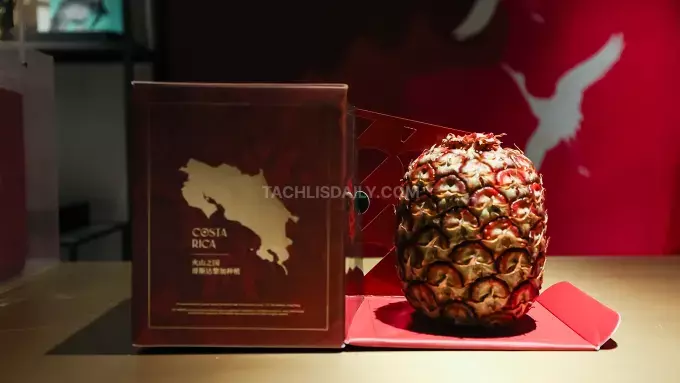
Imagine having $400 to spend on a gourmet dining experience. Instead of indulging in caviar, fine wine, or a multi-course meal, you could opt for a single pineapple.
The Rubyglow pineapple, recognized for its unique red exterior and extraordinary sweetness, is priced at $395.99 at Melissa’s Produce, a specialty fruit seller in California. This pineapple took Del Monte, a major wholesaler, over 15 years to develop.
Initially launched in China, the Rubyglow recently entered the U.S. market at a striking price point. Despite lingering concerns over inflation and unemployment, there is a burgeoning interest in premium fruit among American consumers.
Cindy van Rijswick, a fresh produce strategist, notes that consumers are willing to pay a premium for unique items, catering to a niche market of foodies, high-end restaurants, and certain online platforms.
The trend of luxury fruits isn’t new.
The success of Honeycrisp apples, Cotton Candy grapes, Sumo Citrus, and other specialty fruits has paved the way for the Rubyglow. These fruits command higher prices due to their unique flavors and novelty.
Marketing such fruits is a costly and time-intensive process. Developing a fruit that is both delicious and commercially viable requires years of research and convincing growers to invest in unproven varieties.
The Rubyglow pineapple, marketed as “The Red Legend,” is described as a “rare gem” and “the pinnacle of luxury fruit” by Melissa’s Produce. While sales have been modest, with about half of the initial 50 pineapples sold in a month, the fruit is gaining traction among restaurants and food influencers.
Food influencers, like chef Bo Corley, praise the Rubyglow for its delightful taste and lack of the typical bitter aftertaste associated with pineapples. However, even Corley admits that it may not be worth the $400 price tag. Instead, the appeal lies in its aesthetic and novelty, making it a potential centerpiece for affluent gatherings and social media showcases.










